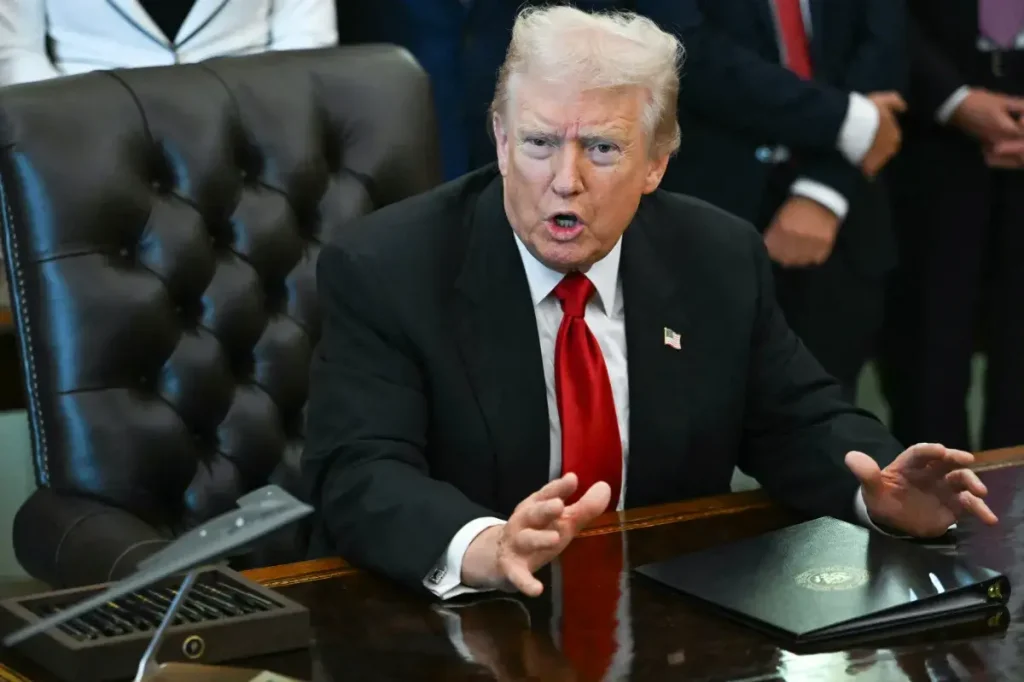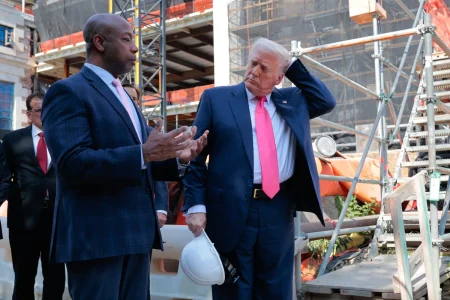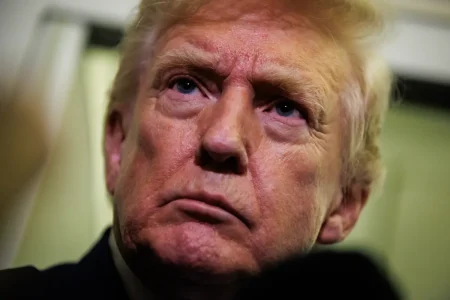Trump’s Pardon of Tennessee Officials Sparks Controversy and Debate
In a move that has ignited significant backlash, President Donald Trump has pardoned former Tennessee House Speaker Glen Casada and his former chief of staff, Cade Cothren, just weeks after their sentencing on public corruption charges. Casada had received a three-year prison sentence, while Cothren was handed a two-and-a-half-year term in September. Their convictions stemmed from a scheme where they allegedly created a fictitious company called Phoenix Solutions to secure taxpayer-funded mail business from legislators after both had been removed from their leadership positions due to separate scandals. The White House defended the pardons, claiming that the Department of Justice under the Biden administration had “significantly over-prosecuted” the pair for what they characterized as a minor issue involving constituent mailers that resulted in a net profit loss of less than $5,000.
The case against Casada and Cothren revealed a complex web of deception involving a non-existent person named “Matthew Phoenix” who supposedly operated Phoenix Solutions. Prosecutors demonstrated that this fictitious identity was used to secure approximately $52,000 in taxpayer funds through a mailer program for lawmakers in 2020. The scheme included forged signatures on IRS tax documents and even involved Casada’s then-girlfriend impersonating an associate of the made-up Matthew Phoenix. This fraud occurred after both men had already fallen from grace in Tennessee politics – Casada had resigned as speaker in 2019 following a no-confidence vote related to sexually explicit text messages he had exchanged with Cothren, while Cothren himself had stepped down amid revelations about racist texts and cocaine use in a legislative office building.
The White House’s justification for the pardons has raised eyebrows, particularly the claim that the Biden administration had overreached in its prosecution. A White House official stated that the case was brought despite prosecutors not receiving complaints from legislators and that the DOJ response included “an armed raid, perp walk, and suggested sentences exceeding 10 years – penalties normally reserved for multimillion dollar fraudsters.” However, fact-checkers have pointed out that it was actually Trump’s own Department of Justice that initially prosecuted the men, with FBI raids on their homes occurring in January 2021, during the final days of Trump’s first term. This apparent contradiction has fueled criticism that the pardons represent politically motivated favoritism rather than a correction of judicial overreach.
These pardons continue a pattern that has emerged during Trump’s second term, where he has used his clemency powers to benefit political allies and those convicted of public corruption. Before Casada and Cothren, Trump had already pardoned Democratic former Illinois Governor Rod Blagojevich, Republican ex-Connecticut Governor John Rowland, former Republican Congressman Michael Grimm who had been convicted of tax fraud, and most recently commuted the prison sentence of former Republican Congressman George Santos, who had defrauded his campaign donors. This trend has sparked intense debate about the appropriate use of presidential pardon power and whether there should be greater constraints on this constitutional authority, especially when used to benefit those convicted of abusing public trust.
Reactions to the pardons have fallen largely along partisan lines, with Casada expressing gratitude to the president and stating that he can now “get on with my life,” while critics have been vocal in their condemnation. Democratic Tennessee State Representative Gloria Johnson wrote, “Democrats can’t speak on the House floor, but Republicans can commit multiple felonies and walk free. Again, don’t let me hear ‘law and order’ come out of your mouth GOP. Ever.” Ron Filipkowski, editor-in-chief of the liberal Meidas Touch outlet, went further, suggesting that “Republican politicians can commit all the crimes they want and victimize as many people as they want because right after they are convicted Trump pardons every single one of them,” and even called for “a constitutional amendment to limit presidential pardon power.”
The controversy surrounding these pardons touches on fundamental questions about accountability, the rule of law, and the scope of presidential powers. Critics argue that by pardoning officials convicted of public corruption, Trump is sending a message that certain political figures are above the law and that criminal behavior in public office might go unpunished if one has the right political connections. Supporters counter that the president is exercising legitimate constitutional authority to correct what they view as prosecutorial overreach and politically motivated investigations. As Trump’s presidency continues, his use of clemency powers is likely to remain under intense scrutiny, with each pardon potentially adding to the national conversation about justice, accountability, and the proper limits of executive power in the American democratic system.













